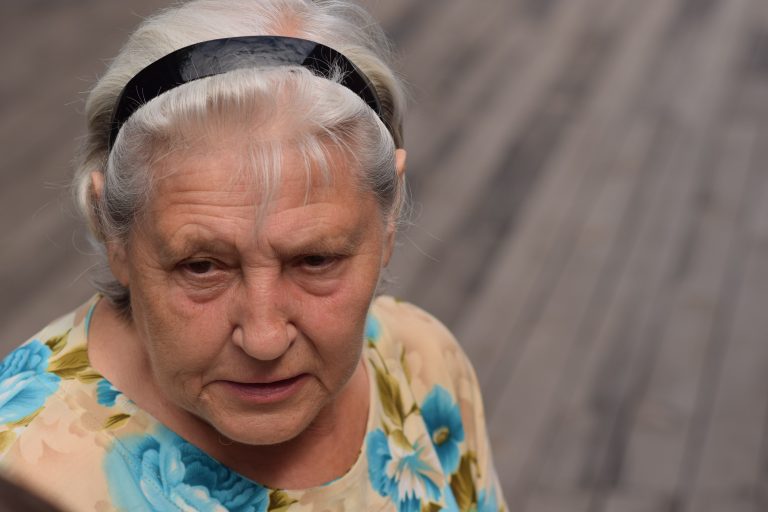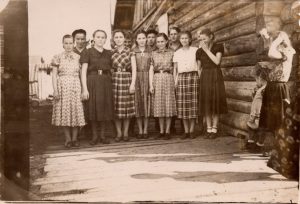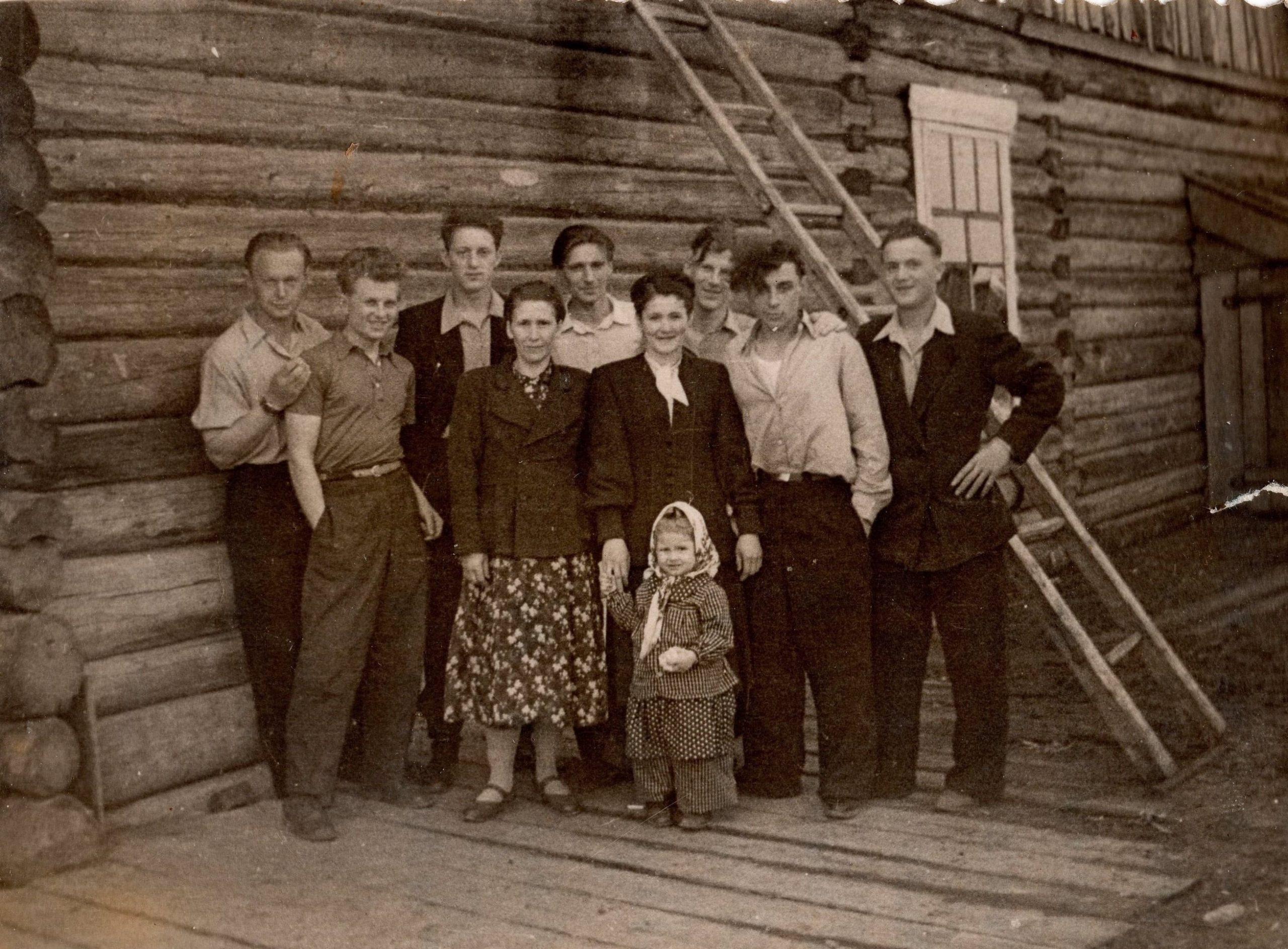Olha Shadna (Vatral)
“I saw an apple only in the picture”
Olha was born in 1941, Bovshiv village (now Halytskyi district, Ivano-Frankivsk region)
Olha’s family was deported in 1946 to the Arkhangelsk region for the involvement of her older brother Slavko in the OUN underground movement. Earlier, Soviet authorities repressed her grandfather, who died in prison for refusing to surrender an agricultural contingent. “My grandfather was convicted. They gave him five years. He told the court: “Thank you, Judge, for giving me another five years to live. I will not live that long. There was a time when I was doing my job well, and I was given a calf of a piglet. And you give me five years.” And he died in prison, no one knows anything more about him,” Olha recalls, “Dad learned that his grandfather had been convicted. I remember that my father cried a lot, and my mother was weeping very hard, she was desperate. My brother tried to support her: “Mom, mom!” They were afraid for my mother.”
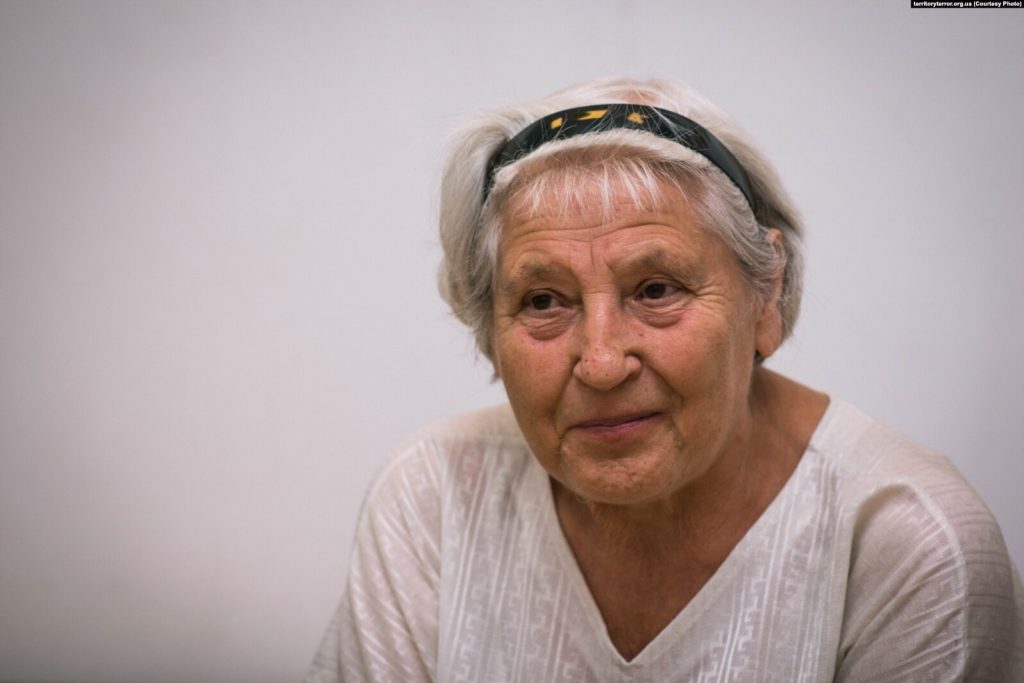
During the eviction, the parents tried to hide six-year-old Olha in a chest, hoping to leave her with her grandmother, but Soviet soldiers found the child and took her away with her parents and older brother. “We were sitting at the table, everyone, I remember. (…) Finally, someone came to the yard. Grandma comes in and says to Dad, “Mykola, they came for you, get ready.” Well, what can a person pack in a village house, when going to an unknown place? They started looking for something, and my grandmother said: “Mykola, where will you take the little one?” My brother was a bit older, he understood more. “She still doesn’t understand anything, leave her with us,” she says. And they took me away and hid me. They hid me, I remember. There was a chest, you know. And I was put behind that chest. The one who took the family away, turned everything upside down while looking for me: the yard, the attic – no child, I disappeared. And then he went to my grandmother’s room. He went in and noticed that something had been thrown on that chest. He took it away, and there was my head sticking out. And I remember it well. I cried a lot, I was scared. My mother was standing at the door, my mother took me in her arms and calmed me down. (…) I remember how we were taken away, we were taken on horses carriage. And when I arrived in the village, the villagers talked about me, “Oh, this is the girl who cried a lot.” I cried a lot because I was scared, I was a little kid. And so we were taken away.”
Only the older sister, who was at school at the time, escaped eviction. She stayed with her grandmother and continued to grow up without parents in poverty. To save the girl from possible eviction, the grandmother registered her as an orphan.
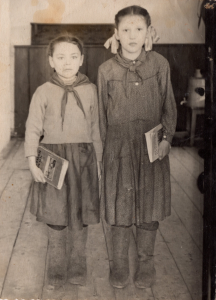
The road to the east was extremely difficult for both young children and adults.
“There were lots of people. There was no place to sleep. We had a corner where my mother put me and my brother down on the floor. Later we got up, then it was my dad’s turn to lie down and sleep because my father was the head of the family, and my mother was a little bit… sometimes… Well, so that a person could lie down and sleep, it wasn’t… (…) And I remember that the train stopped, some people came to the car, exchanged something for food, different things that people had. What could my mom exchange – a handkerchief? Well, my dad had a watch and some shoes, so my dad exchanged them.” To protect Olha from lice, her mother periodically lubricated her hair with oil.
Olga (right) while studying at school
Already being at the special settlement, the girl asked her father about the reasons for the eviction. “I asked my dad: “For what? Dad, for what?” I was akready studying at school. “Dad, why were we taken away?” Dad said, “For Slavko” [brother]. And that’s it, that was the answer.”
In the Arkhangelsk region of the RSFSR, the family was almost starving. My mother worked hard at logging: “Everything was done by women’s hands. There were men when we were brought, but they were taken away. (…) And working there, mum came from work often wet up to a belt. The woman came completely wet up to the waist. Because walking in the woods in the snow was very difficult, especially when they were hungry. I told you – they had 400 grams of bread per adult, 200 grams per child. And those 400 grams of bread was all they had.”

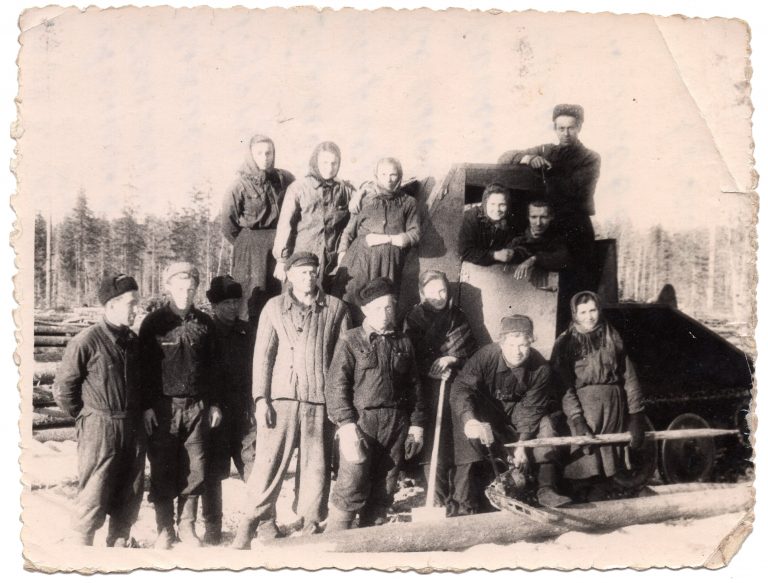
Here at the special settlement, Olha went to school.
“We studied in two shifts – 1-3 grades, 2-4 grades had one teacher. We had only three lessons: reading, writing, and math. If there was ever singing or physical education, it was a “holiday” for us. Because, well, we didn’t have it in general, so what? And after the fourth grade, we went to school to… It was called “Sixteenth Road” (there was a building there, they set a school in it). And we went there, 17 kilometers, 5th grade. Moreover, it was impossible, they didn’t allow parents to go and see the conditions in which we lived there. And we lived there, twenty girls, in one room.”
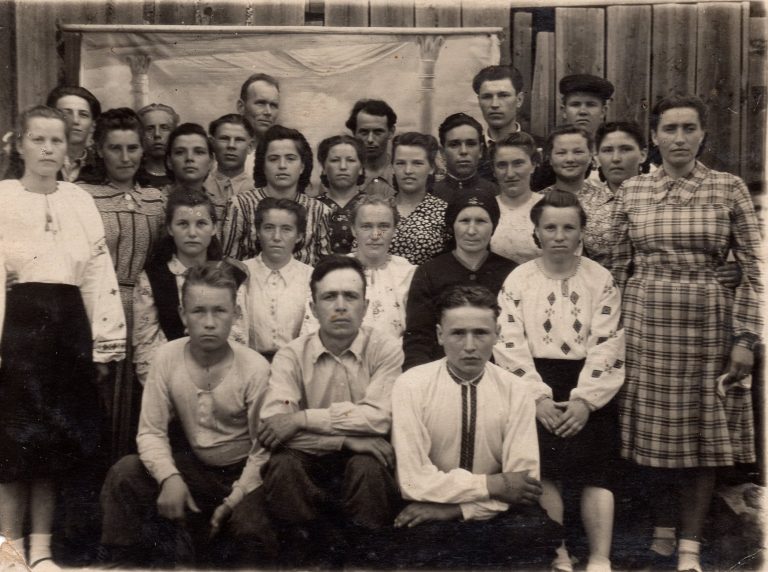
In addition to physical survival, the special challenge for deportees was to preserve their identity.
“So that I can speak a little of Ukrainian. Dad asked my sister to send me fairy tales in Ukrainian. That’s how I could learn something because how would I learn otherwise? Well, that’s how people survived, and what they had to do. (…) Also, people were saying how good it was in Ukraine, and that there are apples and how good they are – I only saw apples in the picture.”
Some relief and hope of returning home appeared only after Stalin’s death on March 5, 1953… “Our people did not show emotions – you know, it was very dangerous. And the recruits were not ashamed, they said, thank God. And the locals cried. I remember so well, my mother came home from work, and then at exactly 12 o’clock, all work stopped, and the locomotives, everything was buzzing, that’s how the mourning looked,” says Olha Shadna.
Despite the removal of various restrictions on the legal status of special settlers after the death of the Soviet dictator, Olha’s family was able to return to her native village only in 1965.
